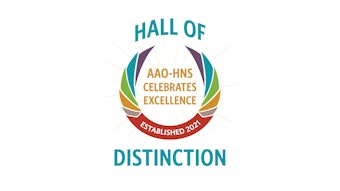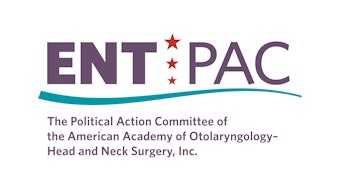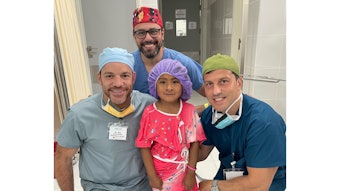OTO Journal Publishes Special Issue on AI in June 2024
The June 2024 issue of Otolaryngology–Head and Neck Surgery published as a special issue on “Science in the Age of Artificial Intelligence.”

Under the direction of Cecelia E. Schmalbach, MD, MSc, Editor in Chief of Otolaryngology–Head and Neck Surgery and OTO Open, the journal’s June 2024 issue published with a special focus on artificial intelligence (AI) and considerations for its implementation and ethical use.
Over two dozen articles run the gamut from using machine learning for disease diagnosis (e.g., “AI Model Versus Clinician Otoscopy in the Operative Setting for Otitis Media Diagnosis,” “The Use of Deep Learning Software in the Detection of Voice Disorders: A Systematic Review”) to surgical instrument detection (“Convolutional Neural Network-Based Deep Learning Engine for Mastoidectomy Instrument Recognition and Movement Tracking”) and future applications for learners in the specialty.
“AI is our future and should not be viewed as the ‘enemy’,” said Dr. Schmalbach in her Editorial. “It has the potential to positively impact medical education, otolaryngology practice, and research. If used correctly, these technologies will not only enhance our field, but alleviate burnout in the process. The key lies in defining ethical implementation, regulatory guidelines, quality control for accuracy, and appropriate transparency through disclosure.”
The issue includes original research on the utilization of AI for acquiring medical knowledge (“Head-to-Head Comparison of ChatGPT Versus Google Search for Medical Knowledge Acquisition”), developing differential diagnoses (“Machine Learning Model Based on Radiomics for Preoperative Differentiation of Jaw Cystic Lesions”), proofreading manuscripts (“Is ChatGPT-4 Accurate in Proofread a Manuscript in Otolaryngology–Head and Neck Surgery?”) and assessing research conflicts of interest (“ChatGPT for Automated Cross-Checking of Authors' Conflicts of Interest Against Industry Payments”). These exciting findings are balanced with a vignette and a commentary highlighting ethical concerns around the implementation of AI technologies, with the latter focusing on preserving the physician–patient relationship.
“As a specialty, we have a responsibility to our patients and society to define the appropriate utilization of AI,” concluded Dr. Schmalbach. “I am incredibly grateful for all our colleagues actively working both to enhance AI applications for the field of otolaryngology and to determine the safe and ethical manner in which to implement these powerful tools—I know we are in great hands!”
Academy members have free access to read and download all articles published in the journal Otolaryngology–Head and Neck Surgery. The method to log in to the online journal has changed as of Monday, May 13. Click here to access the journal’s new login instructions.




















